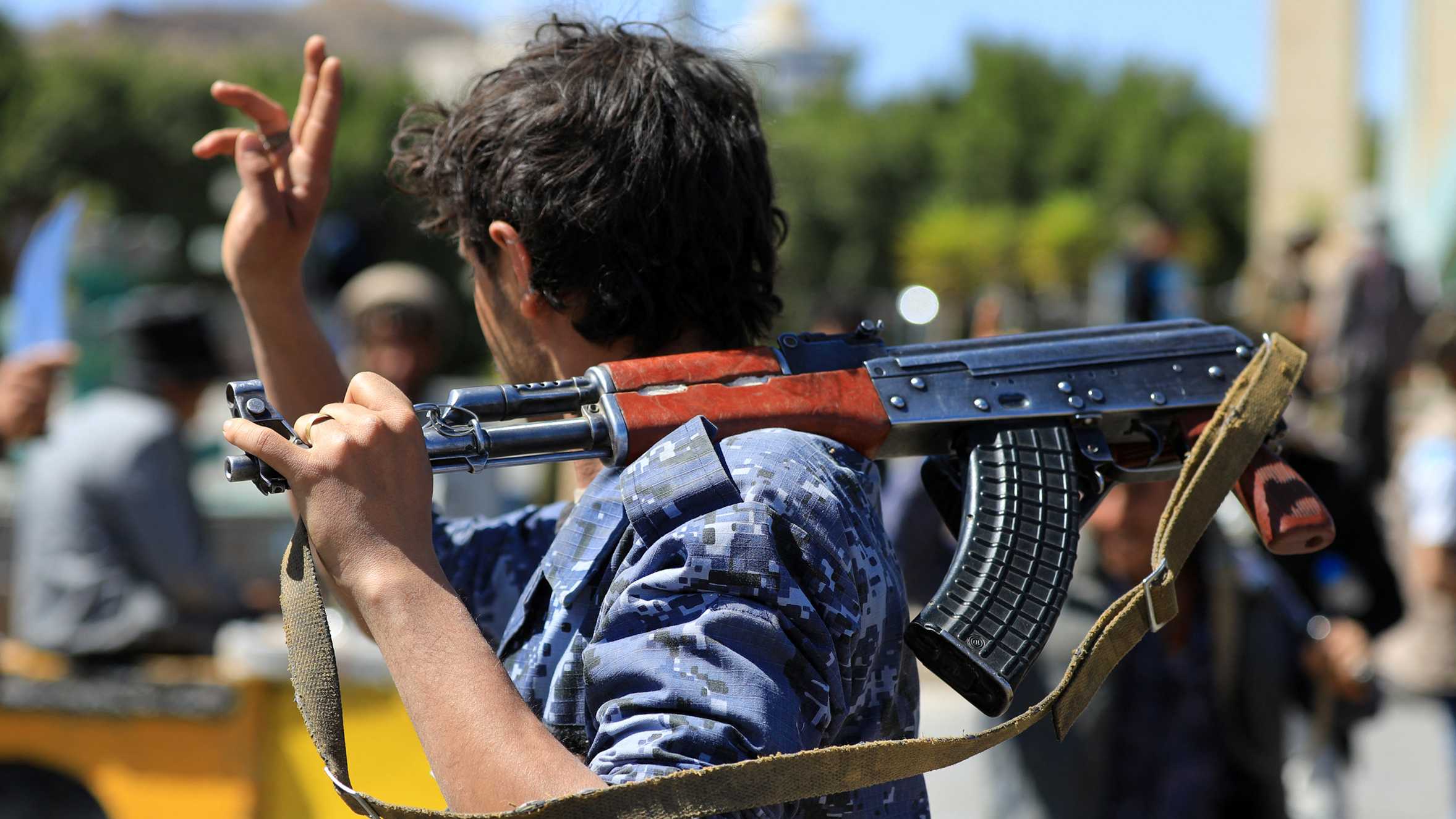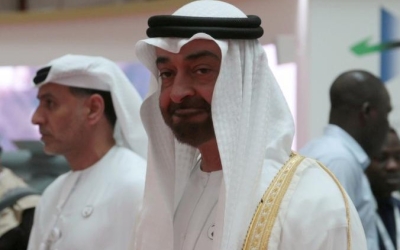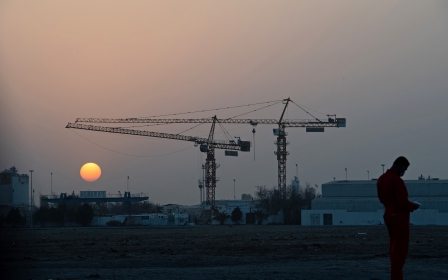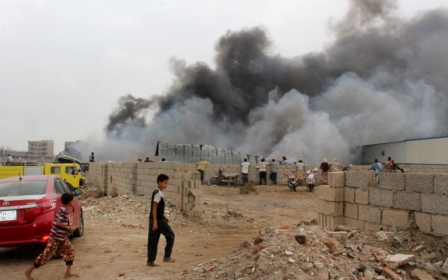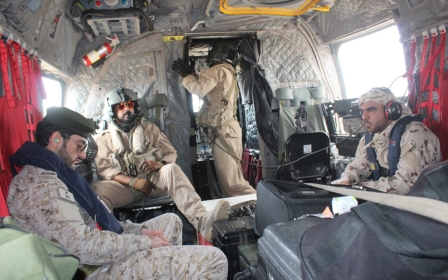The UAE, Iran and Yemen: Why did the Houthis strike back?
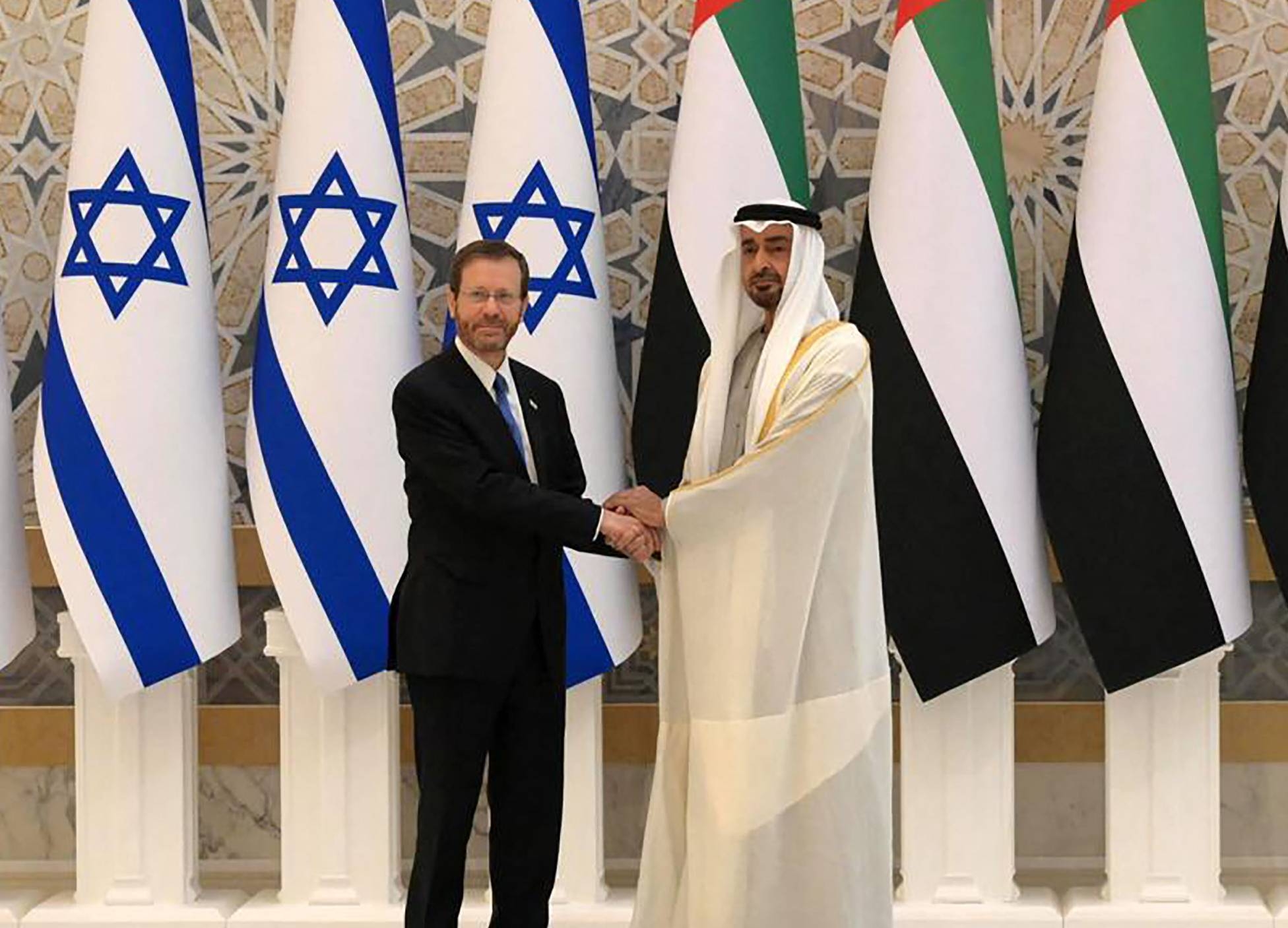
The United Arab Emirates commenced the year with a revamped foreign policy approach, aiming to boost trade partnerships and stability. The plan, in essence, was to substitute proxy politics and military interventionism with diplomacy and dialogue.
In Yemen, the UAE began its shift in policy with the 2019 withdrawal of its troops, ostensibly aiming to end the power struggle between the Hadi government and southern separatists. But it has become clear that the UAE has not truly distanced itself from the Yemen conflict.
Despite the UAE's troop withdrawal, the Houthis are aware that the Emiratis continue to be instrumental in the conflict
Earlier this month, a suspected drone attack by Yemen’s Houthi rebels targeted a key oil facility in Abu Dhabi and started a fire at the city’s international airport, killing three expatriates. Saudi Arabia subsequently reported that a Houthi missile had landed in the kingdom’s south, and the UAE said it had intercepted and destroyed two ballistic missiles over Abu Dhabi.
The Saudi-UAE coalition has since ramped up air attacks against “Houthi targets” in Yemen, while the Houthis promised a “wide military operation” in retaliation.
Over the weekend, in a separate event, the Houthis have confirmed the firing of numerous ballistic missiles at Abu Dhabi and the regional business hub – Dubai. Yahya Sarea, a military spokesman of the Iran-aligned group, warned that the headquarters of multinational corporations in the UAE would be targeted by the missiles in the near future. He also warned foreigners and locals to keep away from "critical installations".
New MEE newsletter: Jerusalem Dispatch
Sign up to get the latest insights and analysis on Israel-Palestine, alongside Turkey Unpacked and other MEE newsletters
While the Houthis have long used drone attacks to target Saudi Arabia, this is the first time they have done so against the UAE, which has been a longstanding member of the Saudi-led military coalition backing the Hadi regime. The war, which has led to the world’s worst humanitarian crisis, has been raging since 2015. So why is this happening now?
Political tightrope
Despite the UAE’s troop withdrawal, the Houthis are aware that the Emiratis continue to be instrumental in the conflict. Some elite forces in Yemen are backed, trained and financed by the UAE, which also continues to be involved in operations in Marib and Shabwah. Abu Dhabi was instrumental in helping the Yemeni government regain control over Shabwah, weakening the Houthis. This shifting strategy has made the Emirates more of a target for the Houthis.
But why would the Iran-backed Houthis target the UAE at a time when Abu Dhabi and Tehran are engaged in a rapprochement, and how will the latest escalation affect that process?
The Emiratis have been walking a political tightrope by attempting to balance diplomatic relations with Iran and Israel, having officially normalised relations with Tel Aviv as part of the US-brokered Abraham Accords in 2020. Tensions have persisted, although a recent visit to Tehran by the UAE’s top national security adviser, Sheikh Tahnoon bin Zayed Al Nahyan, helped to bolster relations.
This latest skirmish, however, is bound to cause further strain, as Riyadh and Abu Dhabi can point to Iran’s role in supplying drone technology to the Houthis. For their part, the Houthis aim to warn the UAE against involvement in the military coalition, which now comes with the risk of further retaliation from the rebel group. The Houthis are also sending a clear message that they are far from being defeated.
Targeting Iran
Israel reacted to the Houthi attack this month by offering "security and intelligence support" to the UAE, highlighting Tel Aviv’s intention to capitalise on the situation in order to offset its arch-rival, Iran. The UAE has reportedly been looking to acquire Israeli missile defence systems as a protection against possible future attacks.
In this respect, the UAE seems to be borrowing from Azerbaijan’s strategy. Baku was in talks last year to purchase $2bn in Israeli arms, amid fears of another war in the Nagorno-Karabakh region. Such situations give Israel an opportunity to boost its relations with regional states, while further ostracising Iran.
On Monday, the UAE said it intercepted and destroyed a Houthi missile while hosting Israeli President Isaac Herzog during the first-ever visit by an Israeli president to UAE. The event helps explain why Iran seems to have given a green light to its Houthi allies to carry out the attacks on the UAE, despite the warming of Iran-Emirati ties. The message is clear: Iran is not happy with UAE developing closer relations with Israel.
On the other hand, the latest escalation shows the inherent fragility of the UAE’s new strategy to eschew confrontation and polarisation in favour of dialogue and diplomacy. This will not be an easy task for the UAE, which will face challenges in trying to outrun its past.
The ongoing Dubai Expo, along with the presence of international conglomerates, has given more coverage to the Houthi attacks. If the Houthis target business centres, it would break the backbone of the UAE economy and damage the national brand image of the UAE as a peaceful business oasis amidst conflict zones in the Middle East.
It will be the undoing of decades-long efforts that have converged in the Emirates being a favoured regional hub for business and finance.
The views expressed in this article belong to the author and do not necessarily reflect the editorial policy of Middle East Eye.
Middle East Eye delivers independent and unrivalled coverage and analysis of the Middle East, North Africa and beyond. To learn more about republishing this content and the associated fees, please fill out this form. More about MEE can be found here.


